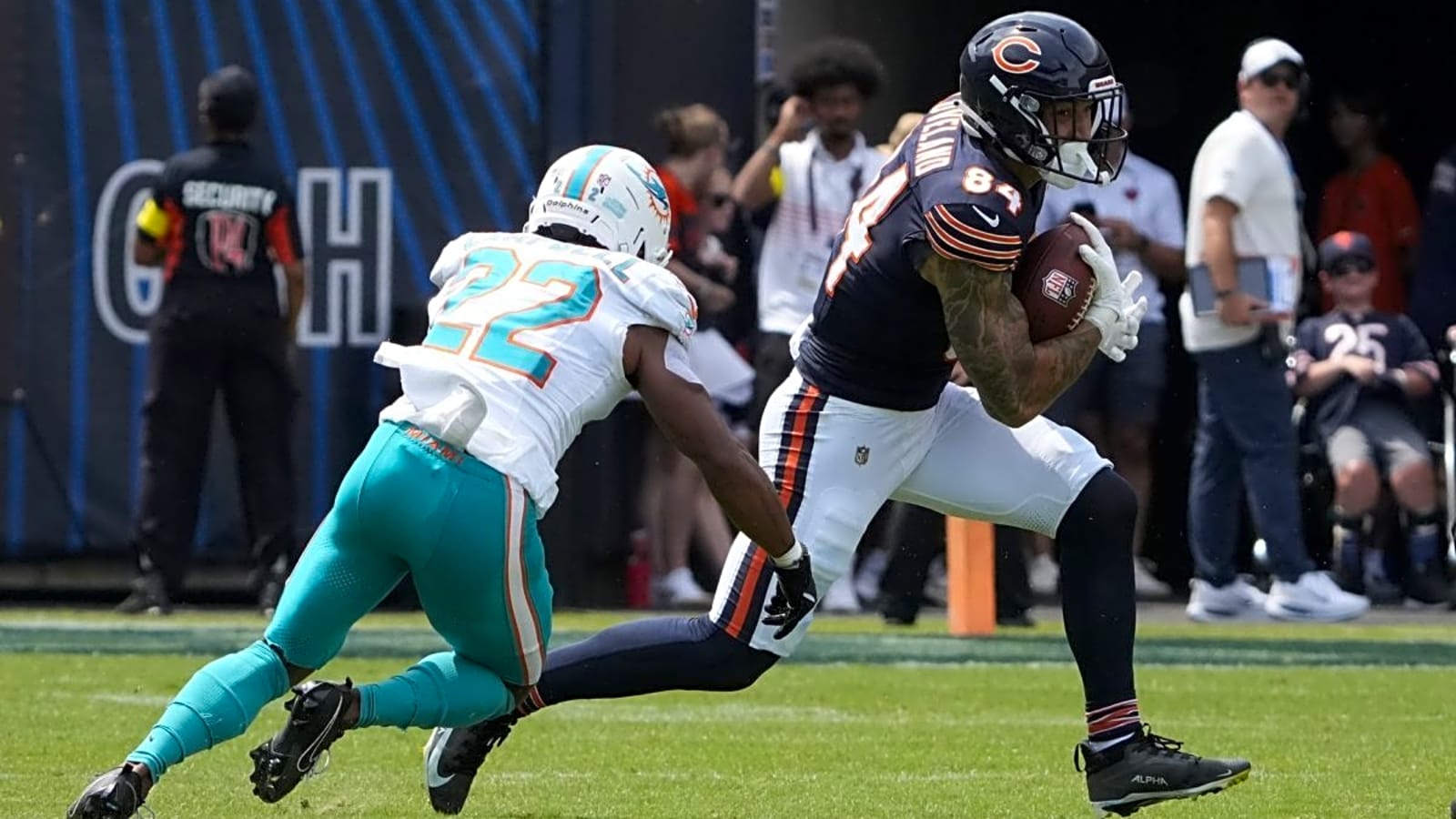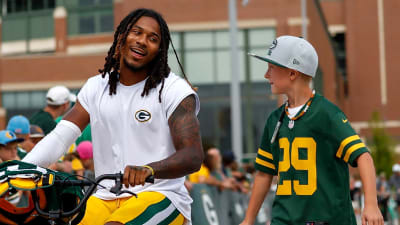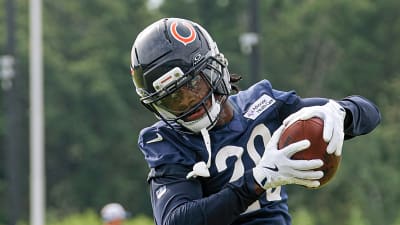
When the Chicago Bears selected Missouri wide receiver Luther Burden III with the 39th overall pick in the 2025 NFL Draft, expectations soared throughout Chicagoland. Many viewed the selection as a steal, considering Burden was regarded by some as a top-10 talent who had slipped due to a disappointing final college season. However, as the preseason concludes and the regular season approaches, analyst Nathan Jahnke of Pro Football Focus has delivered a sobering assessment that should temper expectations for the highly touted rookie.
The Pre-Draft Expectations vs. Current Reality
Luther Burden entered the 2024 college football season as one of the most electrifying prospects in the nation. Two seasons prior, he had posted spectacular numbers with 86 receptions for 1,212 yards and nine touchdowns, showcasing the quick-twitch athleticism and playmaking ability that made him a household name among draft enthusiasts. His combination of speed, route-running precision, and big-play potential led many to project him as a late first-round selection.
However, his final season at Missouri told a different story. Burden’s production dipped significantly to 61 catches for 676 yards and six touchdowns, raising questions about his consistency and development. While some attributed this decline to Missouri’s offensive struggles and increased defensive attention, the drop was concerning enough to cause his draft stock to fall into the second round.
When the Bears were able to select Burden at 39th overall, it felt like general manager Ryan Poles had found exceptional value. The organization and fanbase believed they were getting a player who could immediately contribute to an offense led by sophomore quarterback Caleb Williams and featuring established veterans like DJ Moore.
Troubling Preseason Patterns
According to Jahnke’s analysis, Burden’s preseason usage has been telling—and not in a positive way. The rookie has rotated between slot and outside receiver positions throughout the preseason, but his inability to secure a defined role speaks to larger concerns about his readiness for NFL action.
“With the Bears’ wideouts frequently shifting formations, Burden would need to leapfrog a teammate on the depth chart — something that doesn’t appear imminent,” Jahnke observed. This assessment suggests that despite his talent, Burden has not demonstrated the consistency or mastery of the playbook necessary to earn significant playing time early in his career.
Perhaps most concerning is Jahnke’s observation about Burden’s third-quarter action in the Bears’ final preseason game. In the modern three-game preseason format, extended action in the second half typically indicates a player is fighting for a roster spot rather than preparing for a significant role.
Historical Context Provides Warning Signs
Jahnke’s analysis becomes even more alarming when placed in historical context. Since the NFL moved to a three-game preseason format, only four rookie wide receivers drafted in the first three rounds have logged 15 or more second-half snaps in a preseason game: Tutu Atwell, Danny Gray, Amari Rodgers, and Jermaine Burton.
This group combined for just nine receptions as rookies—a startling statistic that suggests extended preseason action often correlates with limited regular-season impact. Each of these players entered the NFL with significant expectations, only to struggle in their debut campaigns for various reasons ranging from scheme fit to development issues.
If Burden follows this pattern, it would represent a significant disappointment for a Bears organization that believed it was adding an immediate contributor to complement its young offensive core.
The Depth Chart Challenge
Currently, Burden appears to be sitting behind several players on the Bears’ depth chart, including established veteran DJ Moore, second-year standout Rome Odunze, and even veteran Olamide Zaccheaus. This positioning reflects both the strength of Chicago’s receiving corps and questions about Burden’s readiness to contribute immediately.
Moore remains the clear top option after posting over 1,300 receiving yards in his first season with Chicago. Odunze, the Bears’ first-round pick in 2024, has shown steady development and appears to have earned the coaching staff’s trust. Even Zaccheaus, a veteran journeyman, brings experience and reliability that may be more valuable than Burden’s raw talent at this stage.
Coaching Staff’s Perspective
The Chicago Bears’ coaching staff, led by head coach Ben Johnson, face the challenge of balancing development with immediate needs. While Burden’s talent is undeniable, his preseason usage suggests the coaching staff may have concerns about his route-running precision, understanding of the playbook, or ability to handle the physical demands of NFL coverage.
This cautious approach isn’t necessarily wrong. The Bears have playoff aspirations in 2025, and they cannot afford to sacrifice offensive efficiency while waiting for a rookie to develop. Williams needs reliable targets who can execute the game plan consistently, and if Burden isn’t ready to provide that reliability, it makes sense to limit his early role.
The Path Forward for Burden
Despite the concerning preseason indicators, it would be premature to write off Burden’s NFL prospects entirely. Many successful receivers have started slowly before finding their groove as they adjusted to the professional level. The key for Burden will be how he responds to this early adversity.
His development path likely involves mastering the nuances of the Bears’ offensive system while continuing to refine his route-running technique. The speed and athleticism that made him a high draft pick haven’t disappeared, but translating those skills to consistent NFL production requires patience and dedication.
The Bears’ coaching staff will need to find creative ways to utilize Burden’s skill set in specific packages while he continues developing. Special teams work may also play a role in keeping him active and engaged while he works toward a larger offensive role.
Long-term Implications
While Luther Burden’s slow start is disappointing for immediate expectations, it doesn’t necessarily doom his long-term prospects. The wide receiver position often has a steep learning curve, and many successful players have needed time to adjust to the professional level.
However, the Bears cannot afford to wait indefinitely for Burden to develop. With Williams entering his second season and the organization pushing for playoff contention, every roster spot and snap must contribute to winning football games. If Burden cannot establish himself as a reliable contributor by midseason, questions about his fit within the organization may begin to surface.
The historical comparison to struggling rookie receivers should serve as motivation rather than prophecy. While the statistics are concerning, individual circumstances vary, and Burden still possesses the physical tools that made him an attractive draft prospect.
Balancing Expectations and Reality
Luther Burden’s early struggles serve as a reminder that draft position doesn’t guarantee immediate NFL success. While his talent remains evident, the transition from college to professional football requires more than just physical ability—it demands mental processing, technical precision, and the ability to perform consistently under pressure.
Chicago Bears fans who expected Burden to immediately contribute alongside Moore and Odunze may need to adjust their timeline. The rookie’s development may be a longer-term project that requires patience from both the organization and its supporters.
As the Bears prepare for their 2025 season opener, Burden’s role will likely be limited initially. Whether he can work his way into a more significant position will depend on his ability to master the playbook, improve his consistency, and demonstrate the reliability that NFL success demands.
The coming months will reveal whether Burden can overcome these early challenges and fulfill the potential that made him a second-round pick, or if he’ll join the list of talented college receivers who struggled to translate their skills to the professional level.
More must-reads:
- The three best MLB matchups for Opening Day 2026
- Colorado's Deion Sanders makes season-altering decision before Week 1 game
- The 'Most NFL 1,000-receiving yard seasons' quiz
Breaking News
Trending News
Customize Your Newsletter
 +
+
Get the latest news and rumors, customized to your favorite sports and teams. Emailed daily. Always free!








